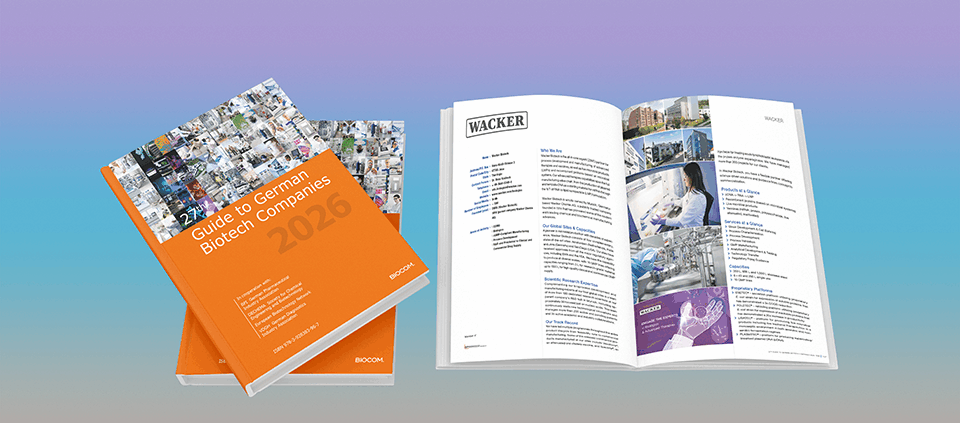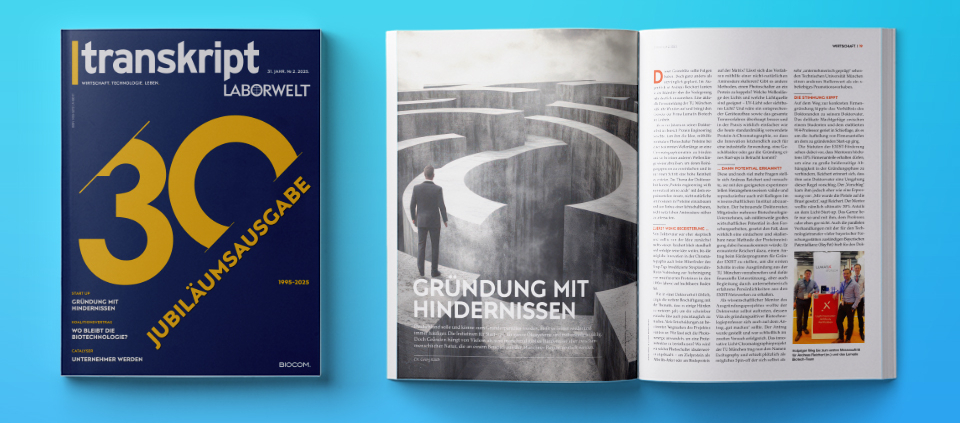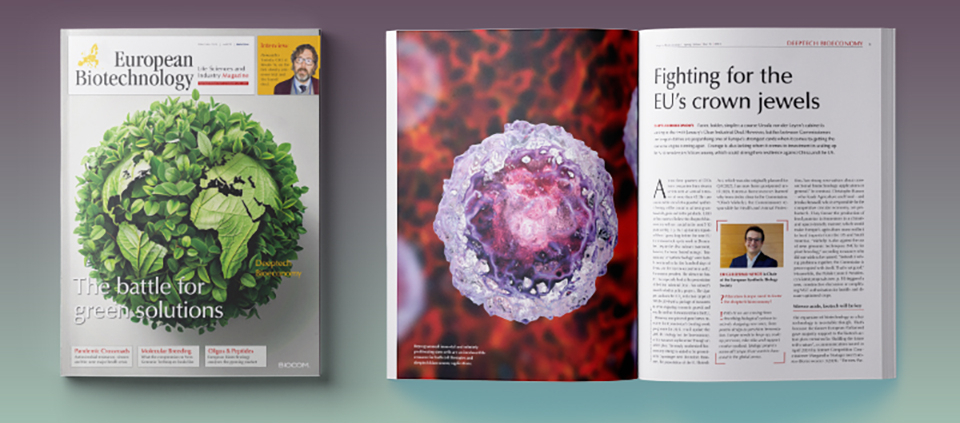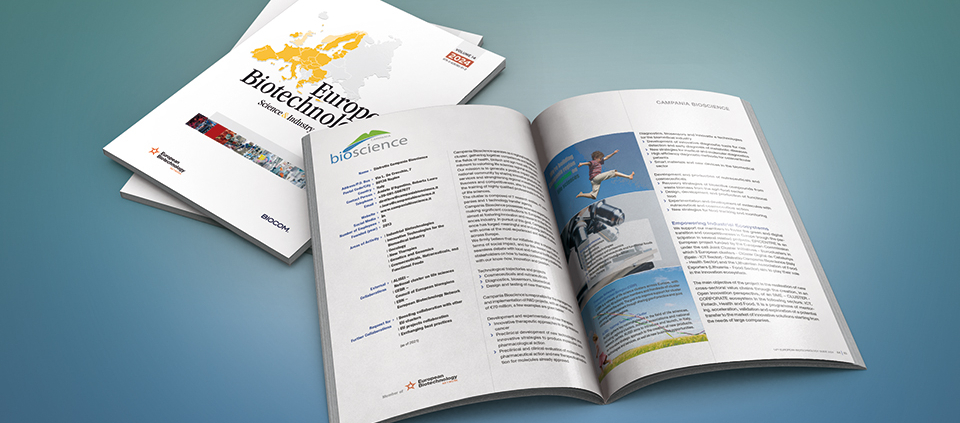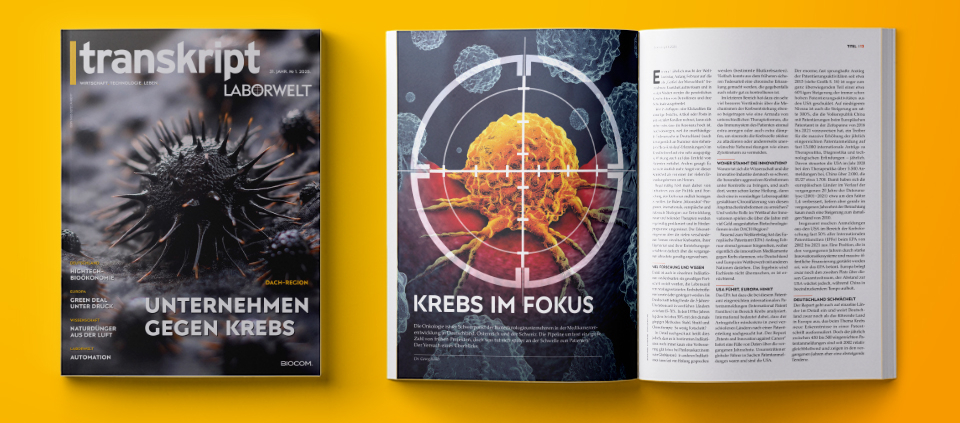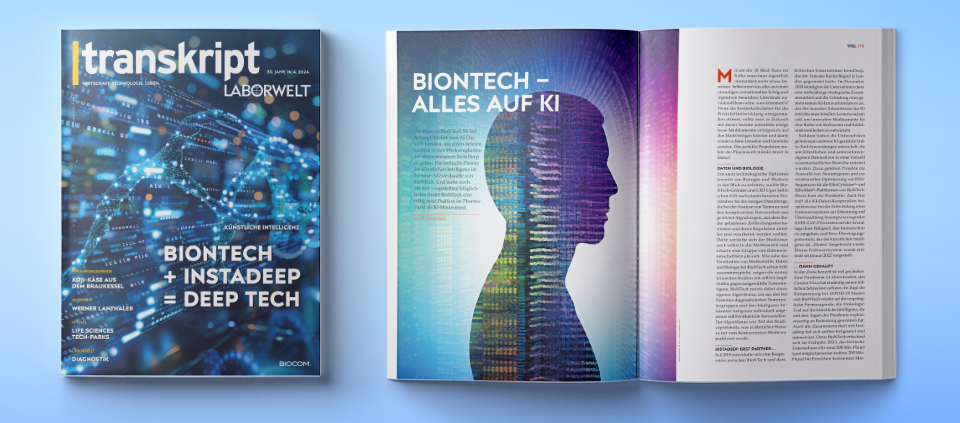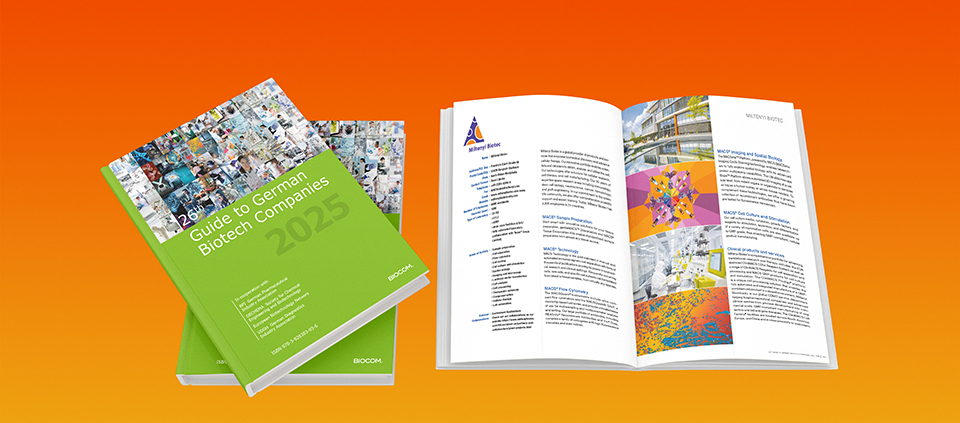Die 14. Ausgabe des European Biotechnology Science & Industry Guide präsentiert brillante Wissenschaft und exzellente Wirtschaft von Unternehmen, Universitäten, Forschungsinstituten und kompetenten Dienstleistern.
Monoklonale Antikörper waren der Grundstein für die Präzisionsmedizin und dominieren nach wie vor den biologischen Markt im Wert von 417 Mrd. US-Dollar. Nach Jahrzehnten der Entwicklung kommen nun jedoch neue Behandlungsmöglichkeiten auf den Markt.
|transkript, one of our German magazines, has been the leading industry publication for biotechnology and life sciences in German-speaking Europe since 1995. It covers current information, opinions, and background on business, research, and politics. In this issue:
Mainz-based BioNTech SE was an early adopter in developing algorithms to produce personalised mRNA therapeutics for cancer treatment—a feat other mRNA companies have also achieved. However, at the company’s first AI Day, its UK subsidiary InstaDeep took the spotlight, positioning the joint venture at the very heart of the AI whirlwind.
Also in this issue:
- BioNTech: All in on AI
- Brain Biotech AG sells pharmaceutical rights to Royalty Pharma
- Interview: Werner Lanthaler, first conversation with the former CEO of Evotec SE
- Immatics advances IMA-203 to Phase III and raises capital
- Interview: Prof. Dr. Andreas Eckert, Chairman of the Supervisory Board, Pentixapharm Holding AG
- Nobel Prizes for miRNAs and AI in protein structure prediction
- Food biotech – Fungal cheese in supermarkets
- Interview: Martin Krauss, Chairman, Federal Association of Contract Research Organisations (BVMA)
- Start-ups
- |transkript personal: Dr. Sebastian Raakers, BLUU Seafood GmbH
- Tech-Park-Spezial
- Laborwelt-Spezial: Diagnostik
- Schwerpunkt Medtech-zwo
Read the issue here (in German).
Soeben ist die 26. Ausgabe des Guide to German Biotech Companies erschienen. Die internationale Visitenkarte der deutschen Biotech-Branche präsentiert mehr als 100 Unternehmen mit ausführlichen Porträts in englischer Sprache auf 240 farbigen Seiten.

